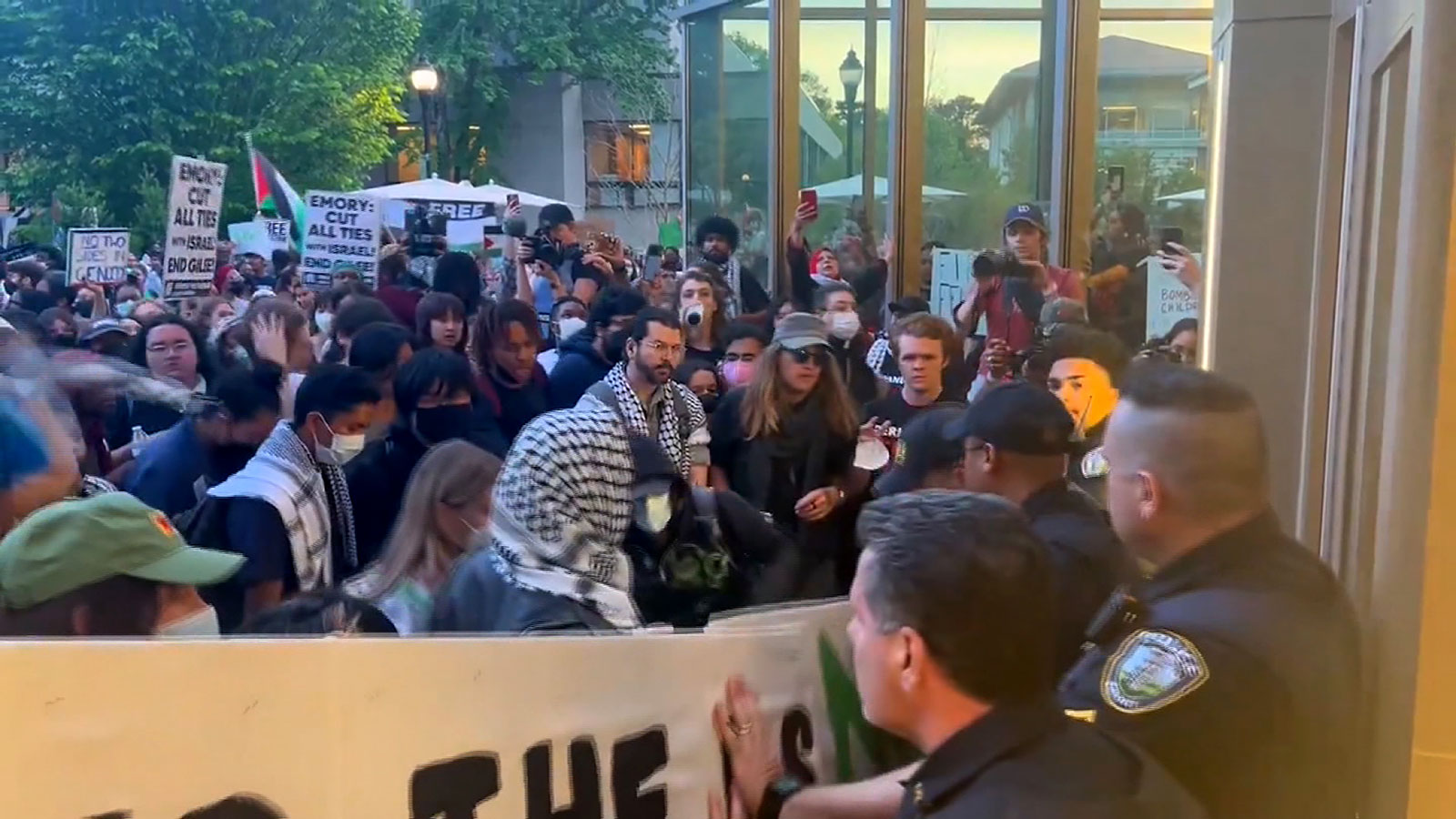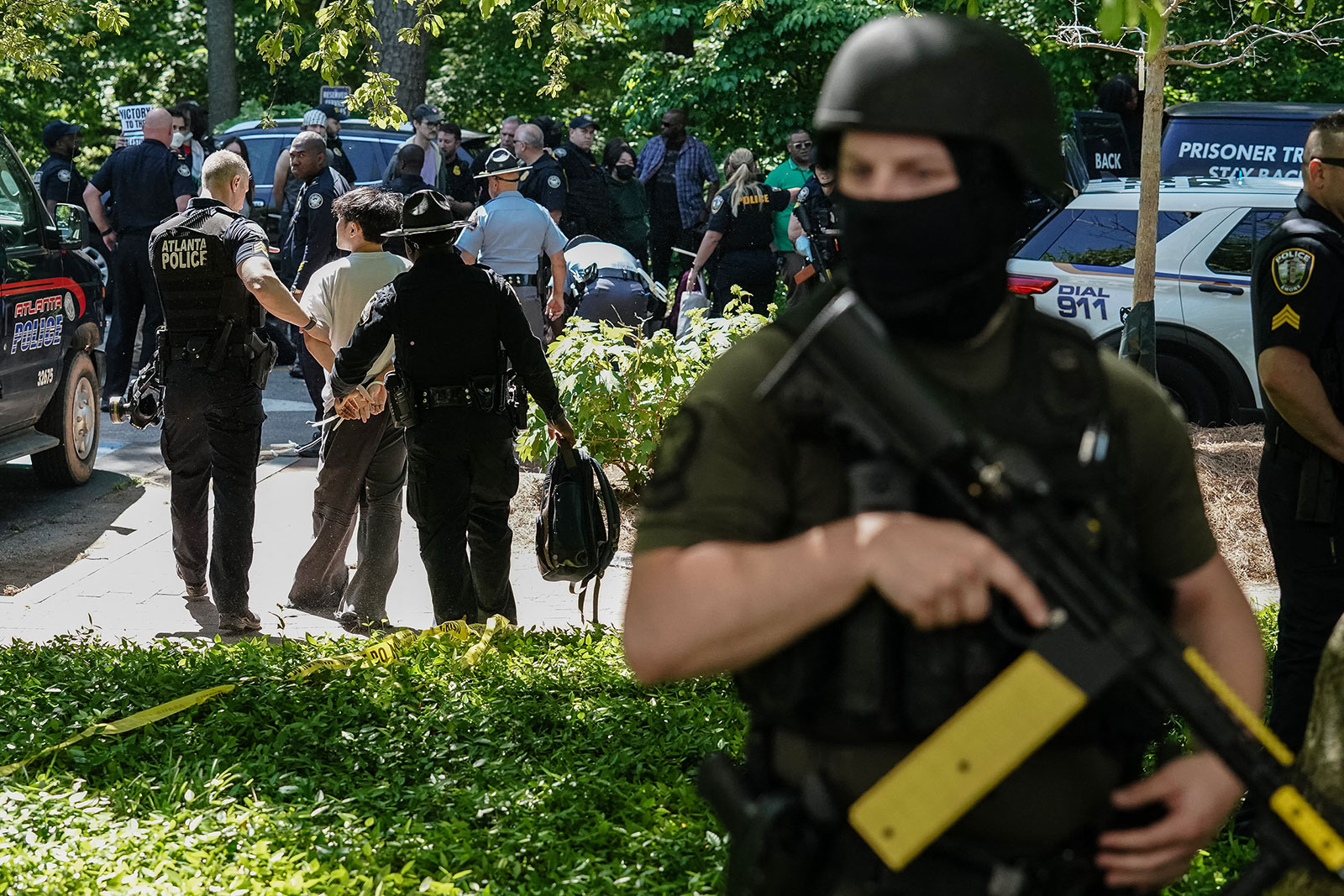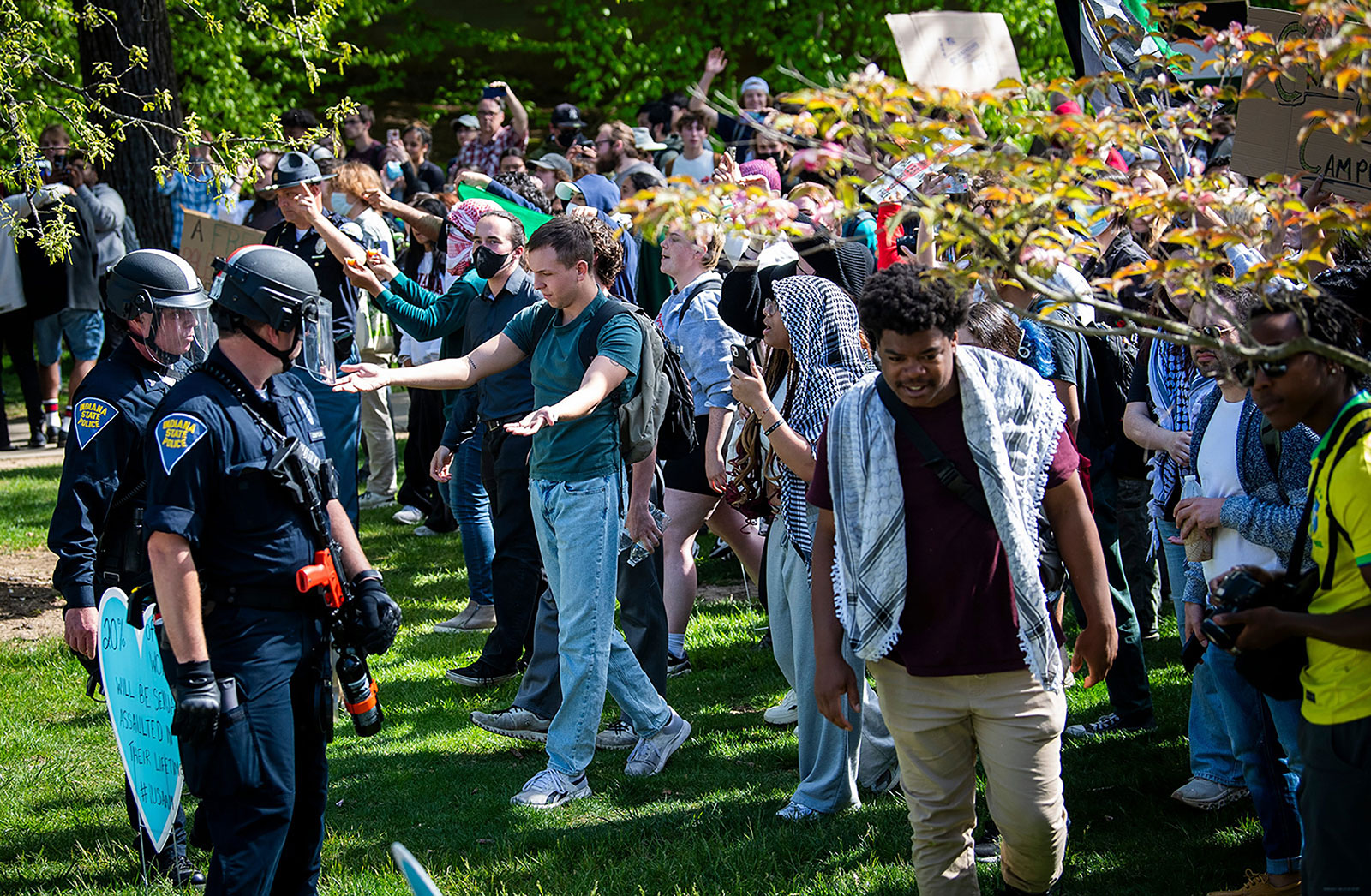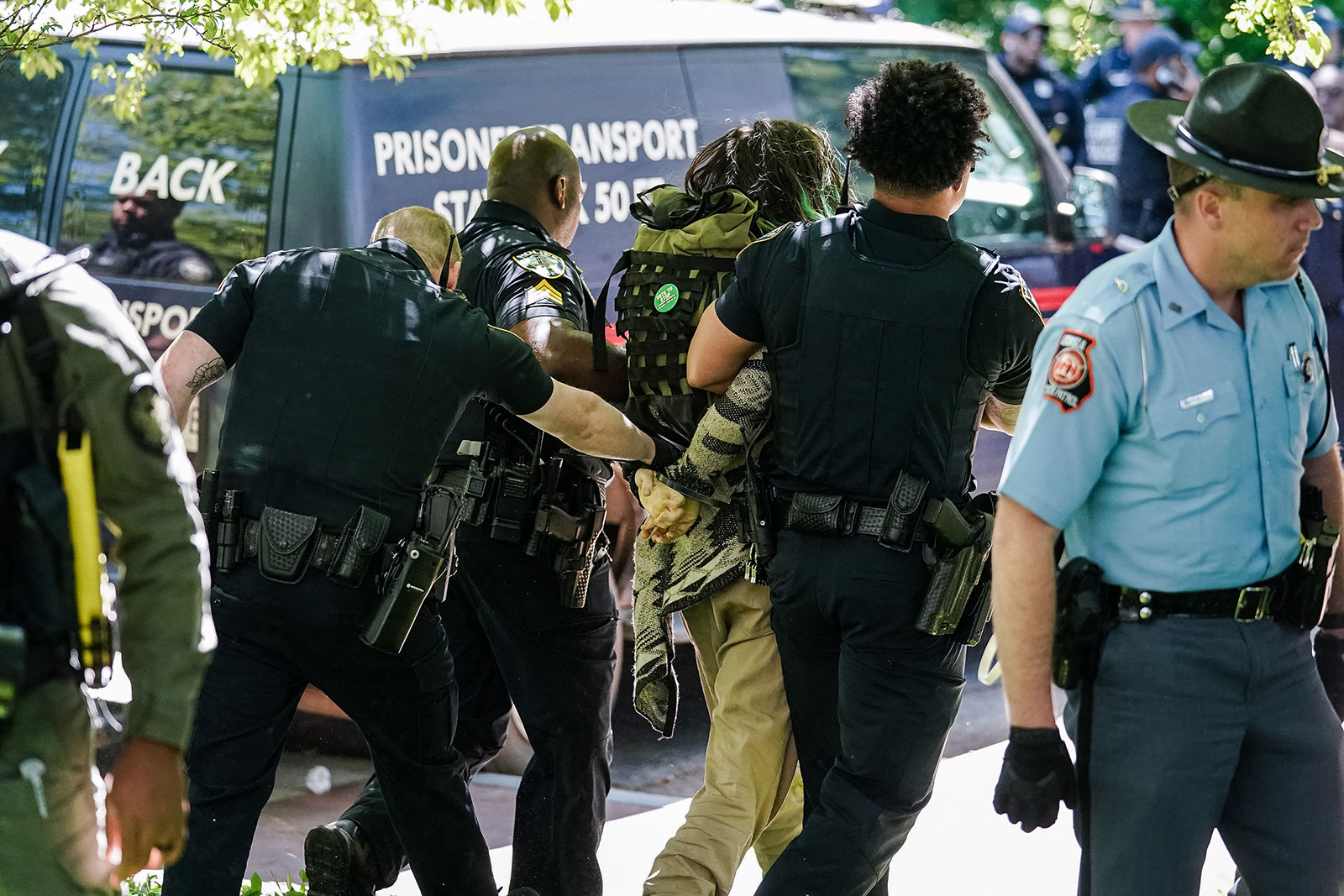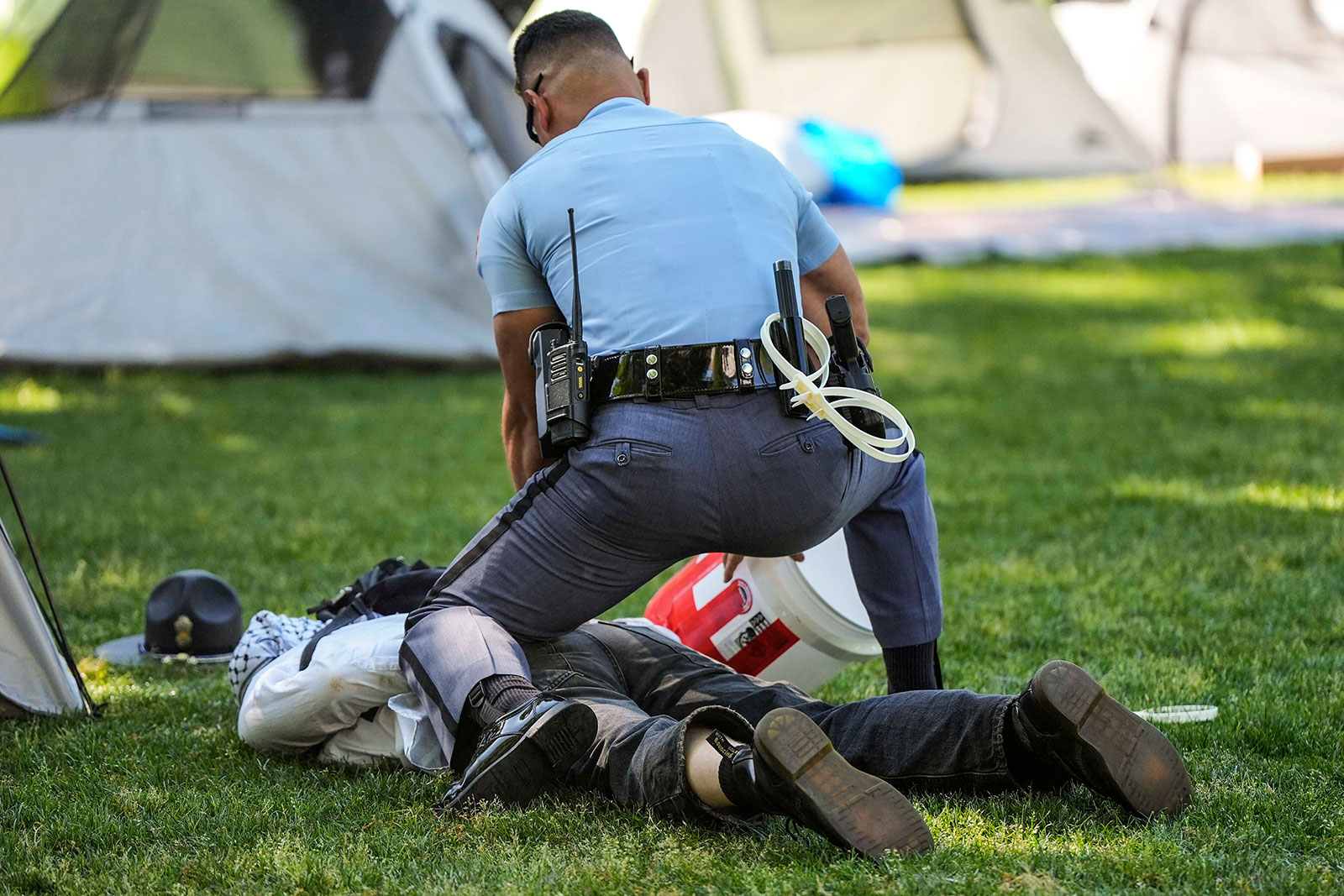Brown University has identified about 130 students who it alleges violated a school conduct code that forbids encampments on campus, a university spokesperson said.
The university's Office of Student Conduct and Community Standards has notified the students, who were identified through ID checks, spokesperson Brian Clark said in a release.
An encampment of about 90 people had formed on the school's Providence, Rhode Island campus Wednesday morning, according to Brown.
"Encampment on Brown University’s historic and residential greens is a violation of University policy, and participants in the encampment have been verbally informed of this fact and that they will face conduct proceedings,” the school's release said.
Students found responsible will be disciplined depending on their behavior and other factors, including any prior conduct violations, the university said, noting students could face probation or separation from the school.
“The University continues to ask individuals in or in immediate proximity to the encampment to present their Brown IDs for two reasons: to verify association with Brown for safety and security reasons, and to appropriately address potential violations of policy."
